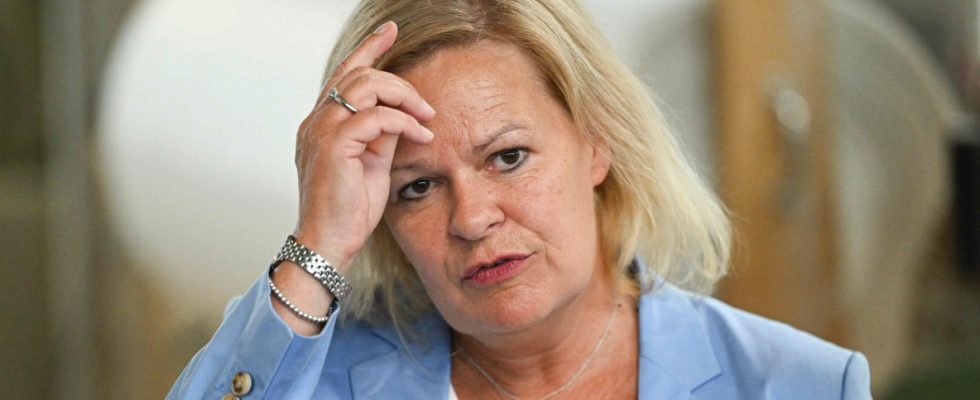At a press conference in Berlin on Wednesday, Federal Interior Minister Nancy Faeser was pleased that the Federal Cabinet had passed the draft law to reform nationality law. “The Skilled Immigration Act has already been passed, now we are taking the important next step in citizenship law,” said Faeser, who emphasized the importance of the reform for the business location. “We urgently need skilled workers in many areas of our economy.”
However, these skilled workers can only be recruited if they have the prospect of becoming citizens. The step is therefore “one of the most important reform projects of this traffic light coalition,” said the minister, and praised the cooperation of the coalition partners on the way to the draft law as “constructive”. In her opinion, the reform “would not have been possible in a previous government with the Union.”
In the future, naturalization will be possible after five years instead of the previous eight. Those who “are particularly well integrated” can shorten this period even further – to three years. “That applies to people who speak German very well, achieve excellent results at work, or do voluntary work,” says Faeser. The prospect of rapid naturalization also serves as a motivation to act accordingly.
According to the draft law, children born in Germany to foreign parents should also be able to become Germans more quickly, provided at least one parent has been living in Germany legally for five years and has an unlimited right of residence. So far, this only applies after eight years. “We know from studies that children’s educational success and chances are much better the earlier they are naturalized,” says Faeser.
“No tolerance” for misanthropic attitudes
The minister also commented on the conditions for naturalization that will not be relaxed, such as the commitment to the free-democratic basic order. “Racism, anti-Semitism or any other form of misanthropy stand in the way of naturalization,” says Faeser. There is “no tolerance at all” in this area, even if the punishment for a crime committed in this way was low. “If you don’t share our values, you can’t become a German,” she said.
Regarding criticism from the ranks of the opposition that the planned reform would promote immigration into the social systems, Faeser said that the draft law also stipulates that those who want to be naturalized can take care of themselves and their relatives without state help.
On the other hand, the demands on members of the so-called guest worker generation, i.e. immigrants who made a significant contribution to German prosperity from the 1960s onwards, when there were no integration offers from the state, and who are therefore still poorly integrated to this day, are said to be softer. In return, these people will now be spared the naturalization test and high language requirements. “German industry would be unthinkable without this generation of guest workers,” emphasized Faeser.

